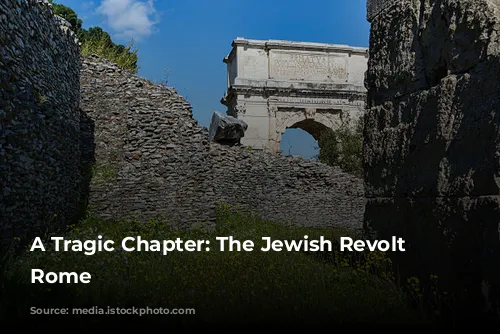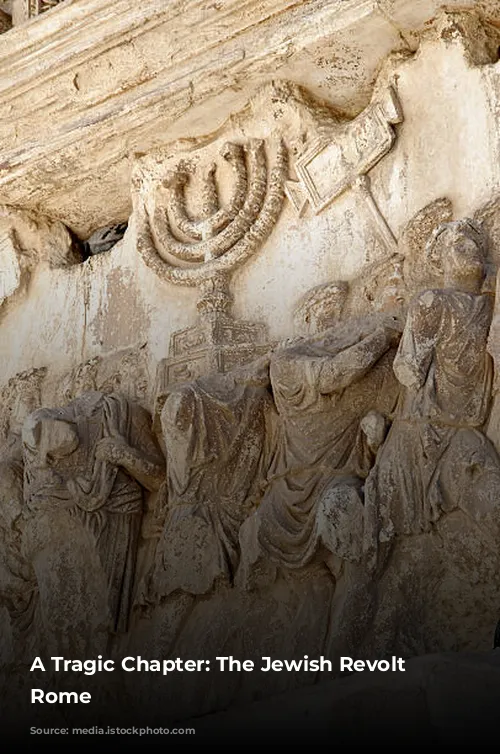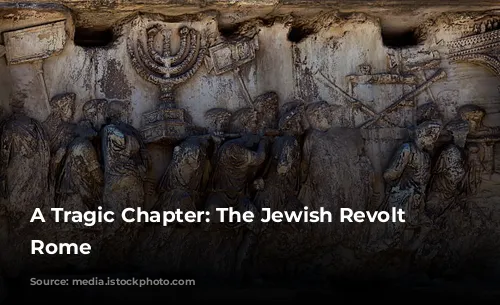Imagine a people yearning for freedom, their spirits crushed under the weight of an oppressive empire. This was the reality for the Jews under Roman rule. They yearned to break free from the shackles of their oppressors, to reclaim their independence and religious freedom. However, their desperate struggle for liberation would ultimately lead to one of the most devastating catastrophes in Jewish history.
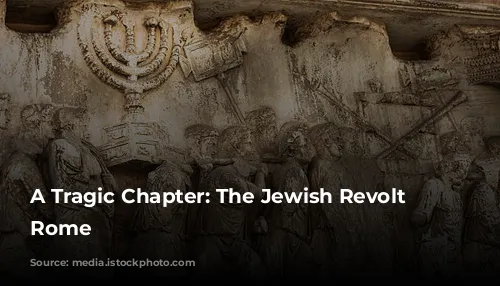
The Seeds of Rebellion
The Romans had established their presence in Israel in 63 B.C.E., their rule gradually tightening its grip. The appointment of Roman procurators, tasked with collecting hefty taxes, further fueled the flames of discontent. These officials, motivated by personal gain, imposed exorbitant taxes on the Jewish population, squeezing their resources dry.
The appointment of the High Priest, once a symbol of spiritual authority, was now in the hands of the Romans, further fueling the anger and resentment of the Jews. This deeply symbolic act, akin to a foreign power dictating who would lead a religious institution, was a direct affront to Jewish beliefs and traditions.
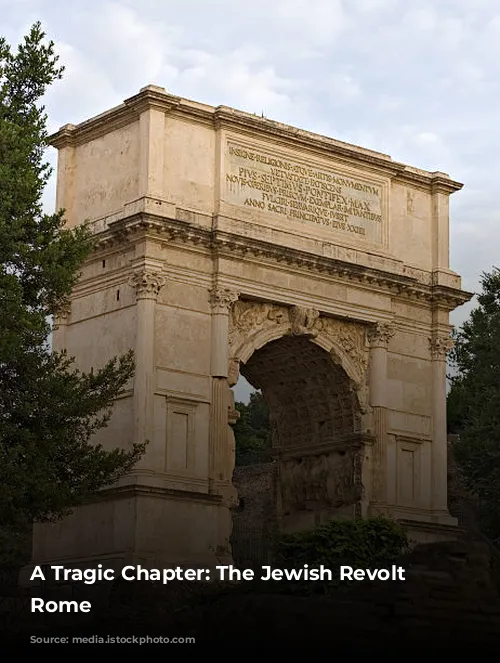
The Rise of the Zealots
As tensions simmered, a new group emerged: the Zealots. These radical rebels, driven by a burning desire for freedom, believed that any means necessary were justified to achieve their goal. They saw Roman rule as a violation of their religious and political rights, and they were determined to fight for their freedom.
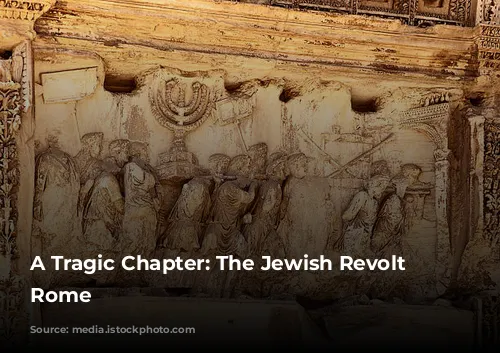
Caligula’s Insanity and the Temple
The reign of Emperor Caligula, known for his erratic behavior, intensified the Jews’ plight. In a bizarre act of arrogance, Caligula declared himself a god and demanded that his statue be erected in every temple throughout the Roman Empire. The Jews, however, refused to comply, standing firm in their refusal to defile their holy Temple with an image of a pagan deity.
Caligula’s enraged response was a threat to destroy the Temple, a symbol of Jewish faith and identity. A delegation of Jews was sent to appease him, but their efforts were met with scorn and threats of violence. Only Caligula’s untimely demise saved the Jews from a potential massacre.
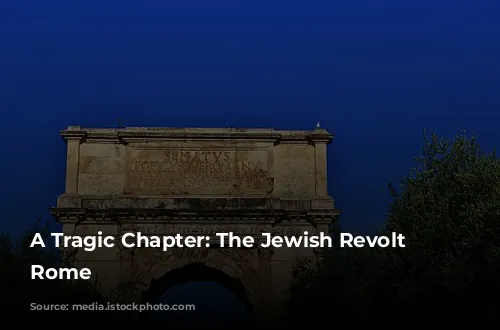
The Revolt Begins
Caligula’s actions, however, had a profound impact on the Jewish community. The threat to their most sacred site had galvanized even the most moderate Jews, fueling their fear and determination. The Zealots, emboldened by their perceived divine favor, saw the emperor’s death as a sign that God was on their side.
Throughout the following decades, the Jews faced relentless oppression. They endured humiliation, witnessing Roman soldiers desecrating their Temple and burning their sacred scriptures. The Roman authorities treated them with open contempt, favoring the Gentile population over the indigenous Jews.
Finally, the boiling point was reached. The Roman procurator, Florus, stole vast amounts of silver from the Temple, a blatant act of theft that ignited the Jews’ rage. They rose up in revolt, wiping out the small Roman garrison stationed in Jerusalem.
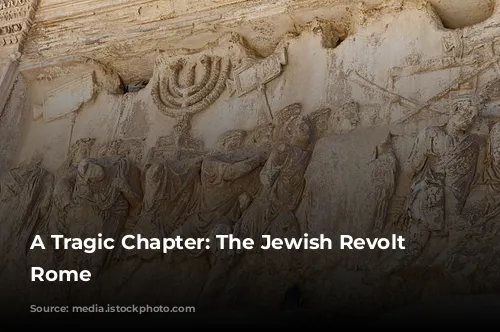
A Brief Hope, A Deadly Flaw
The initial success of the Jewish rebellion, the routing of a larger Roman force sent in response, fueled a surge of hope and optimism. However, this victory, while exhilarating, also had a devastating consequence.
The Jews, emboldened by their early successes, became convinced they could defeat the mighty Roman Empire. The ranks of the Zealots swelled, their ranks filled with those who believed they were destined for victory. However, this confidence was ultimately misplaced.
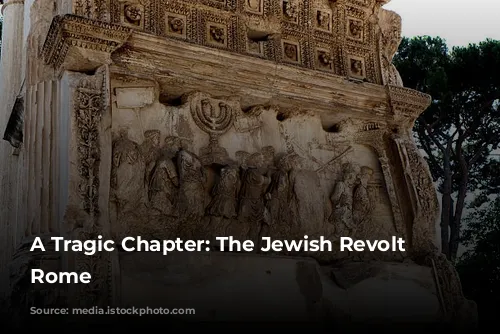
The Roman Retaliation
The Romans, enraged by the Jewish rebellion, returned with a massive force of 60,000 soldiers, determined to crush the uprising. They launched their attack on the Galilee, a region known for its radicalism, decimating the Jewish resistance. Thousands perished, leaving countless others enslaved.
Tragically, the Jewish leadership in Jerusalem, blinded by a misplaced hope for peace, failed to offer meaningful support to their brethren in the Galilee. They believed, perhaps too late, that the revolt was doomed to fail and sought to minimize Jewish casualties.
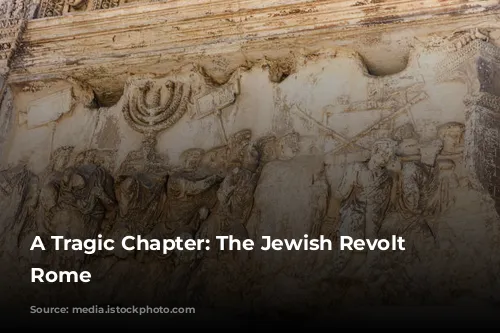
The Seeds of Destruction
The surviving Galileans, driven by grief and anger, sought refuge in Jerusalem, the last remaining Jewish stronghold. Their bitterness fueled a wave of violence against those perceived as less radical, leading to the deaths of the more moderate Jewish leaders. Ironically, these leaders, who initially sought to prevent a violent conflict, were killed not by the Romans, but by their own people.
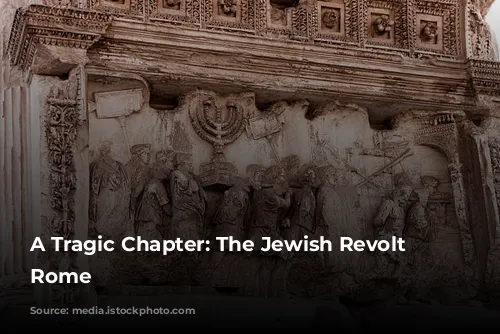
The Final Catastrophe
Inside Jerusalem, the Jews were now divided, their unity fractured by bitter infighting. Outside the city, the Roman army prepared to besiege Jerusalem, ready to finish what they had started. This internal conflict, fueled by senseless hatred, accelerated the downfall of the Jewish state.
The Zealots, blinded by their radical ideology, even went so far as to destroy their own food supplies, hoping to force everyone into the fight. This act of self-destruction, a tragic mistake driven by blind rage, brought about a terrible famine, adding another layer of suffering to the already unbearable situation.
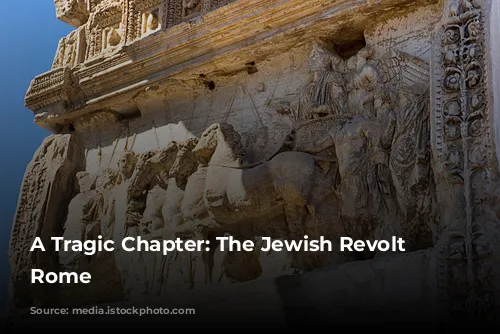
A Light in the Darkness
Amidst the chaos and violence, there were those who sought peace. Rabbi Yochanan ben Zakkai, a respected Jewish leader, recognizing the futility of continued resistance, urged his people to surrender to Rome. Fearing for his life, he was smuggled out of Jerusalem, disguised as a dead man. He then surrendered to the Roman general Vespasian, who, recognizing his wisdom and influence, granted him concessions that allowed Jewish life to continue.
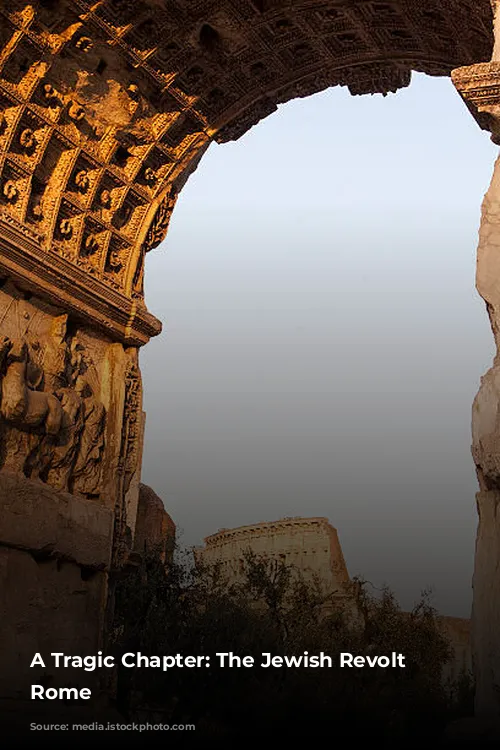
The Fall of Jerusalem and Its Aftermath
The Romans, fueled by a desire for revenge, finally breached the walls of Jerusalem in the summer of 70 C.E. Their victory was swift and merciless, culminating in the destruction of the Second Temple, a devastating blow to the Jewish people.
This rebellion, followed by the Bar Kokhba revolt some six decades later, marked a period of immense suffering and loss for the Jewish people. It is estimated that over a million Jews perished in these uprisings, leaving a legacy of destruction and exile.
The failure of the Jewish revolt against Rome resulted in the loss of Jewish political authority in Israel, a void that would last for almost two millennia. This loss compounded the suffering of later generations, robbing them of a safe haven during times of persecution.
The Great Revolt stands as a poignant reminder of the complexities of history, the tragic consequences of internal divisions, and the profound impact of oppression. It is a story of hope, resilience, and loss, a powerful testament to the enduring spirit of the Jewish people.
